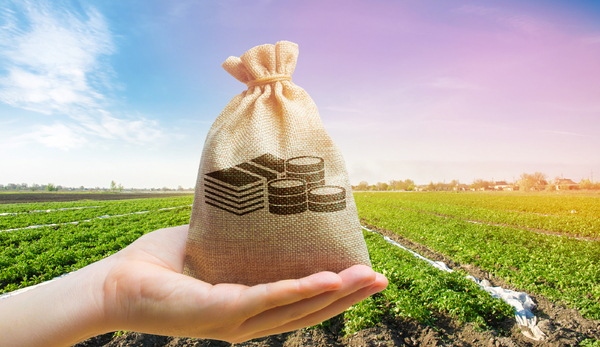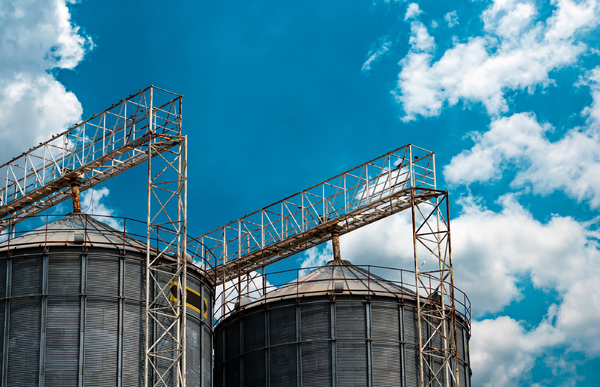_600x.jpg)
We’re living in the era of Big Data. While we tend to think of data as being a highly coveted asset among companies in technology, finance, and retail, it’s also important to recognize its role in the agriculture sector.
Agriculture businesses share many of the same goals as businesses in other industries:
- They seek to find new ways to lower costs with minimal or no sacrifices.
- They want to maximize profits in the face of rising operating costs or changes in demand.
- They continue to cater to their audience’s needs by producing high-quality, trustworthy products.
- They want to improve their vendor and supplier relationships for ongoing success.
Any company or industry that uses business intelligence may find these goals are more feasible and more easily achieved with the implementation of business intelligence systems.
What do we mean by business intelligence?

Business intelligence, or BI, refers to the software, systems, processes, and other technologies that collect and report on business-critical information. The goal of BI is to allow companies to tap into their data to make better business decisions.
When applied to agriculture, business intelligence can cover a broad array of technologies, including but not limited to:
- Sensors in the fields
- Mobile devices with agriculture-specific apps
- Cloud-based software and computing for real-time updates
- Precision agriculture systems
- Internet of Things-enabled equipment and gadgets
When BI systems are thoughtfully developed, they can monitor every aspect of a farming operation and collect and crunch data that farmers can use to make improvements.
What are the benefits of business intelligence?

Proper analysis of the amount of data that can be collected by farming organizations is virtually impossible using conventional methods. Adopting BI systems allows farms to make better use of their data and take advantage of its intended benefits, including:
- Making data-driven decisions
First and foremost, business intelligence drives smarter decisions. Farming’s purpose of providing a service essential to life leaves little room for error, and farms need data they can trust. BI systems provide real-time data across the entire business operation so that farmers can better understand the impact of their decisions on specific areas and the organization as a whole.
- Increasing competitive advantages
Farming businesses are no strangers to competing for sales of the same product, particularly as many regions or areas grow similar crops simply because of natural conditions. With greater intelligence and better decisions come opportunities to improve, which could help you gain an advantage over competing farms.
- Improving forecasting
Forecasting is an essential part of running a successful agribusiness. All of your production must be planned in advance, which means you must take into account your anticipated market demand, weather conditions, labor availability, and potential obstacles that could impact your goals. BI can help you with forecasting because it collects data over time and can detect trends and anomalies based on large sets of your own data.
- Integrating a network of agri-tech
Smart tech in agriculture is growing, and BI serves as an anchor point to unite multiple technologies. BI connects various points of data with each other to develop deeper insights into your farming operations.
Use cases for BI in agriculture

The agriculture industry as a whole demonstrates the need to apply business intelligence to a variety of use cases. In doing so, farming operations are in a better position to achieve the above benefits. Some of these use cases include:
- Production planning
There are many moving parts to planning a crop: availability and preparation of the land, planting, irrigation, harvesting, and shipping, to name a few. BI can rely on data from previous years to improve your planning and allow you to avoid reinventing the wheel with each new production cycle.
- Sales goals
As your farming expenses change, so may your sales goals in order to maintain profitability. BI systems can monitor the financial end of your operations and help you improve your production to ensure you’re hitting the right objectives.
- Managing recalls
No farm wants to find itself at the center of a recall. For starters, recalls can be extremely expensive in terms of lost revenue and damaged vendor and supplier trust. Plus, it’s not always easy to trace recalled items through the supply chain.
BI helps to simplify this process by keeping up with batch numbers, harvest dates, storage conditions, sell dates, and other important data that can help you mitigate the impact of a recall.
- Waste reduction
One of every farm’s primary goals is to reduce waste at every link in its operations chain. Spoilage means goods are no longer viable to sell, which can eat into profits. Other types of waste, including damage to equipment, unnecessary irrigation, or other activities that don’t add value can also impact a farm’s profit.
BI systems are comprehensive in nature and serve to help farms identify areas of waste across your operations. This allows you to plug money leaks before they wreak havoc on your finances.
Deploying Sage X3 in your agriculture business intelligence strategy
When examining specific use cases for BI in agriculture, it’s not just a matter of collecting and reviewing data. Farmers also need a simple way to tap into the data they find most useful in a way that’s agile and user-friendly. Many don’t have time to master a steep learning curve and need an intuitive interface and features to get up and running right out of the gate to make it worthwhile.
Because of these factors, many agriculture businesses find Sage X3 to be a favorable solution. Its powerful features are designed with agribusiness needs in mind to increase profits and reduce expenses while focusing on core business functions like production, finances, and the supply chain.
As a long-time Sage X3 implementation partner, NexTec puts years of experience behind developing and launching business intelligence systems for agriculture organizations. We’ve designed additional functionality around agriculture business needs that can help you make the most of your data. Get our short guide to BI and what it can do for your business.
